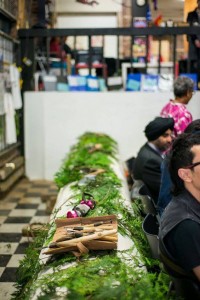Welcome to the first post in my English 470A Canadian Studies class blog! The course focuses on Indigenous literature in juxtaposition with European traditions, so we’ll be looking at issues like the relationship between literature and storytelling and the connections between nation building, canonization, and colonization. Blogging is a large part of the way we interact in this class, so this blog will feature my weekly contributions as the term goes on.
My name is Cecily, and I’m a fourth-year student doing a double major in English Literature and Creative Writing. (Having read through some of my fellow students’ blogs, I’m a little surprised at how popular that combination seems to be – hi Hava, Charmaine and Kevin!) I plan to graduate next year; it’s a little hard to believe that this will be the last time I take classes in the summer.
I find that Canadian authors are often sidelined next to the much larger American publishing industry. While I am a Canadian citizen now, I moved here from the US eight years ago, so I have the experience of being an outsider and I’m less familiar with Canadian literature than many people who grew up here.

I’ve been introduced to contemporary and historical Indigenous issues in Canada through friends in activist communities who contributed to projects like the Idle No More protests or the Survivors’ Totem Pole. Even so, Indigenous literature often seems to be sidelined even within Canadian literature, and I can’t say I’ve had much experience with it, so I’m looking forward to learning about something that’s so relevant to the place I live but that I don’t necessarily know a lot about.
I’m particularly intrigued by the prominent role that storytelling and blogging play in this class, since it’s an experience that is very distinct from any of the other literature courses I’ve taken, and because both of these aspects are so applicable to the Creative Writing portion of my degree. It’s really interesting how the online format can actually encourage interaction and participation rather than prevent it. I can’t wait to read everyone’s blogs over the term – I think we’re going to have a great summer!
Works Cited
“ENGL 470 Canadian Studies.” UBC Department of English. Web. 15 May 2015. <http://www.english.ubc.ca/courses/summer2015/470-98a.htm>
Fong, Melissa. “A Survivor’s Totem Pole to Symbolize Resistance, Persistence, and Inclusion in Vancouver.” Georgia Straight. 4 July 2014. Web. 15 May 2015. <http://www.straight.com/blogra/680001/survivors-totem-pole-symbolize-resistance-persistence-and-inclusion-vancouver>
“Idle No More.” Idle No More. Web. 15 May 2015. <http://www.idlenomore.ca>
“Survivors Totem Pole.” Downtown Eastside Sacred Circle Society. Web. 15 May 2015. <https://www.facebook.com/survivorstotempole/photos/a.485170878282115.1073741828.476972702435266/619317151534153/>
Hi Cecily!
Great post! I really loved your comment on the lacking role of Canadian literature in our society. I think what is truly upsetting is that, although you would assume that you know less about Canadian literature as an American who moved to Canada 8 years ago, the reality is that even most Canadians aren’t very familiar with many pieces of Canadian Literature. Growing up in the BC education system, I feel sadly underexposed to pieces of great Canadian literature. Many of the books we were required to study were often great American classics like “The Outsiders” or “To Kill a Mockingbird”. I guess this is applicable to many other aspects of Canadian society that seem to exist as an extension of the United States, rather than a nation in and of itself. I think this is really relevant to our class this semester, ENGL 470, because it highlights the issues of stories and narratives and the hierarchy of whose stories and narratives are told at the expense of others. Like you suggested, Indigenous literature is even more so sidelined within the realm of Canadian literature.
As someone who was born and raised in Canada, I’m interested in exposing myself to more pieces of indigenous literature, and perhaps more importantly, uncovering and critiquing why they are so often dismissed by or unknown to the average Canadian.
Thank you for your comment! It’s interesting to hear that you didn’t get to read much Canadian literature in school either – I definitely get the sense (just from living here) that this is pretty typical.
🙂
Hello Cecily,
A great starting blog – thank you and welcome to our course of studies together this summer. Thanks for the links too! I was thinking the same thing as Freda when I read your post – it is true, Canadians read American classics in grade school – but not necessarily Canadian authors. I hope you enjoy this summer working together. Erika
Thanks for your comment and insight! I look forward to working with everyone over the next months.